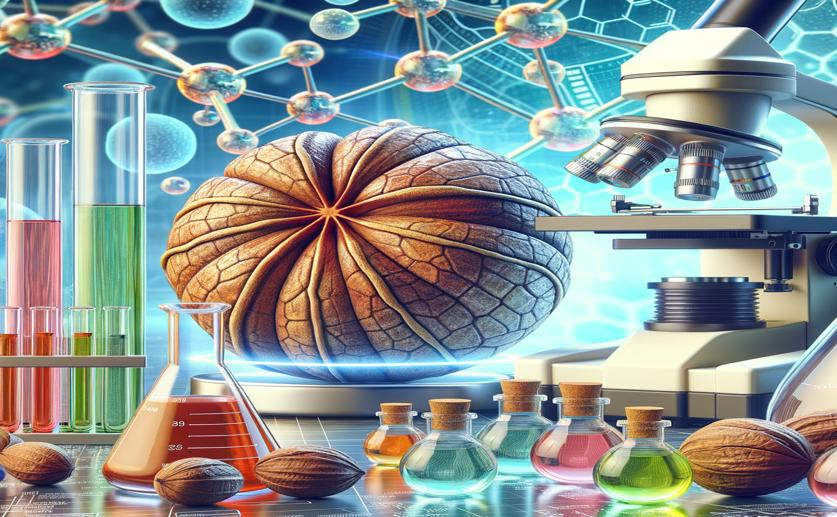
Exploring Nutmeg Seed for New Medicine Potential
Jim Crocker
2nd May, 2024

Image Source: Natural Science News, 2024
Key Findings
- Researchers at Tishk International University found nutmeg seeds may help fight infections and improve heart health
- Nutmeg has potential as an antidepressant and anxiety-reducer but must be used carefully due to possible toxic effects
- The study suggests nutmeg's compounds could lead to new plant-based medicines with further research and trials
References
Main Study
1) Therapeutic, and pharmacological prospects of nutmeg seed: A comprehensive review for novel drug potential insights.
Published 1st May, 2024
https://doi.org/10.1016/j.jsps.2024.102067
Related Studies
2) Preferential overexpression of a class MU glutathione S-transferase subunit in mouse liver by myristicin.
Journal: Biochemical and biophysical research communications, Issue: Vol 236, Issue 3, Jul 1997
3) Physiologically based kinetic modeling of the bioactivation of myristicin.
4) Phyto-chemical and biological activity of Myristica fragrans, an ayurvedic medicinal plant in Southern India and its ingredient analysis.



 15th January, 2024 | Jim Crocker
15th January, 2024 | Jim Crocker